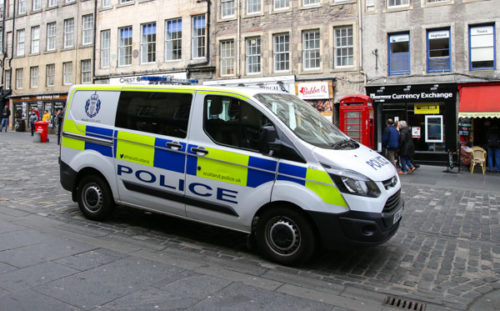Initiative to encourage hate crime victims to come forward

Police Scotland is focussing on workers in the night time economy in an effort to encourage more victims of hate crime to come forward.
Feedback from police officers and partners show workers in late night industries such as fast food outlets and convenience stores as well as taxi drivers and door security staff are most at risk of experiencing hate crime.
In a bid to raise awareness of the issue and ensure night-time workers – as well as the wider public – reports these crimes, Police Scotland is launching a hate crime campaign which will run from 18 February to 10 March 2019.
Over 6,700 hate crimes were recorded in Scotland in 2017/18 and 66 per cent involved people being targeted because of their race. Sixteen per cent had a sexual orientation aggravator and seven per cent a religion aggravator.
Chief Superintendent John McKenzie, head of Safer Communities, said, “Hate crime can have a devastating impact upon victims, their families and wider communities. It can leave victims feeling isolated and fearful of what might happen next. It’s important people know they can report it and how to report it.
“We work with partners including the Scottish Government to raise awareness and encourage the reporting of hate crime. If victims don’t feel comfortable reporting the matter directly to police they can report to third Party Reporting Centres who have staff that can identify hate crimes and offer support to victims.”
Taxi driver Muhammad Saqib has been a victim of hate crime. Mr Saqib, who is the president of the Scottish Ethnic Private Hire Welfare Association (SEPHWA), was first targeted around 12 years ago.
He said, “When it happened I wasn’t surprised but I was shocked. I was only doing my job, a group of guys called me for a taxi after their night out and my job was to take them home.
“It was a very scary experience. It was the middle of the night and they started threatening me, almost getting physical. There are no barriers in the car, I was driving around in the dark and I felt unsafe.
“These things always happen if there is any major news event to do with Islam around the world. When the incident happened at Glasgow airport and the Manchester arena bombing, it was a hard time for ethnic drivers, especially Muslim drivers. You are targeted.
“If I am targeted I don’t tell my family. If they find out, they ask me to stop doing my job. But somebody has to do it. My advice is whatever your experience is, the best way to deal with it is to share it with others which will be beneficial to them and society.
“There are many reasons why people in my industry don’t report it. They might not be sure how the police will treat the incident, there’s a language barrier, lack of confidence and potential loss of earnings.”
SEPHWA was established in 2008 and is one of Police Scotland’s third party reporting centres.
The organisation was set up to give ethnic people a voice, raise awareness of hate crime and act as a bridge between ethnic private hire drivers and the police.
Mr Saqib added, “If you don’t want to go to a police station, go to a third party reporting centre. You have to report any crime, especially hate crime. Don’t just accept it.”
The Safer Communities department within Police Scotland have a scheme where officers across the country can be hate crime champions.
This means they are trained to provide advice and support around hate crime to other police officers and police staff.
Key partners in this year’s campaign include the Scottish Grocers Federation, Just Eat, the Security Industry Authority and Scottish Licensed Trade Association.
Graham Corfield, Managing Director of Just Eat UK, said, “We work with over 30,000 restaurants in the UK and we want to play our part in helping restaurant owners and employees alike to feel safe when they are at work. Giving people the confidence to report hate crimes is hugely important, and we’re pleased to be supporting this important campaign.”
If you have been a victim of a hate crime, please contact Police Scotland on 101 or speak to an officer. A list of third party reporting centres is on our website.